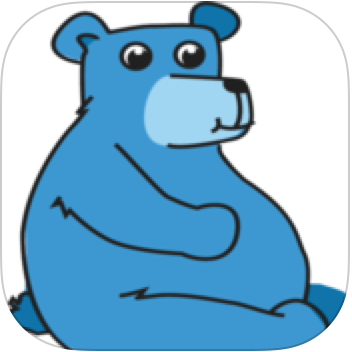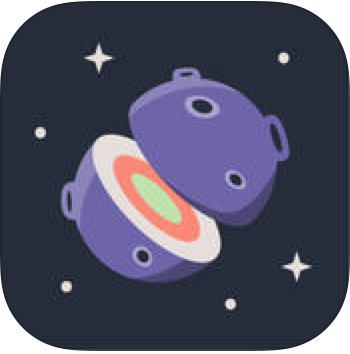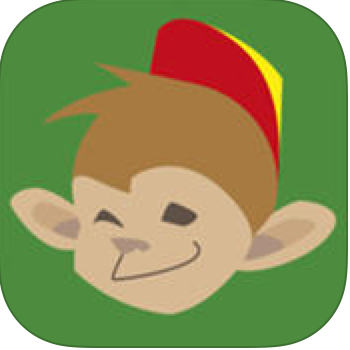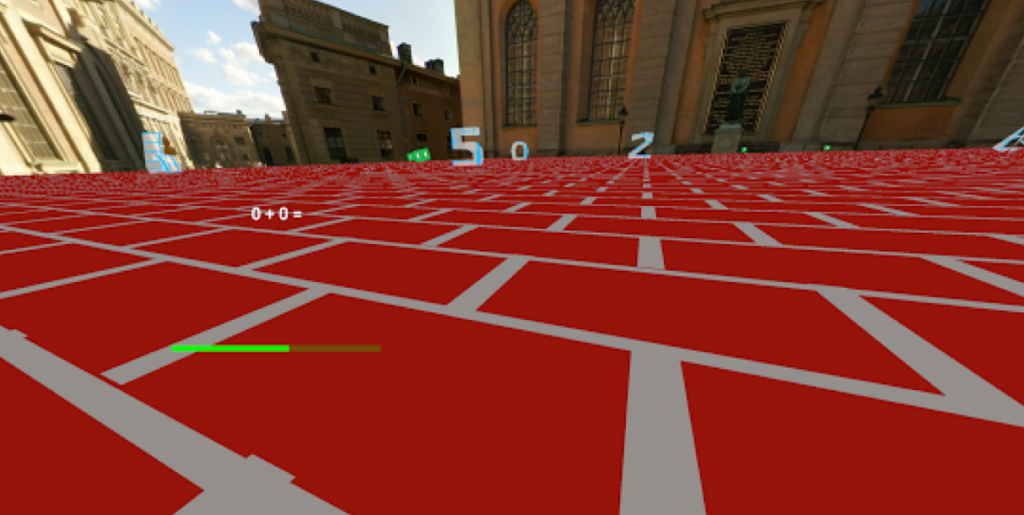One of mine masterstudents developed an educational app for google cardboard. The app is called Mathrallye and hopefully children enjoy the crazy game AND learning math. Feedback how it works would be much appreciated.
[workshop] Social Media und Mobile Learning #tugraz
Ich darf heute an der PH Luzern einen Einführungsworkshop zu Social Media Learning und Mobile Learning halten. Heute gleich einmal die Folien als .pdf zum Download:
[app] Multiplikationstrainer #app #LearningAnalytics
 Der Mulitplikationstrainer, Teil unseres Learninglab , erhält nun auch eine iOS-App, die einerseits einen Trainingsmodus und andererseits eben den Übungsmodus implementiert hat.
Der Mulitplikationstrainer, Teil unseres Learninglab , erhält nun auch eine iOS-App, die einerseits einen Trainingsmodus und andererseits eben den Übungsmodus implementiert hat.
Expand your multiplication skills.
You can start a short game over ten rounds or an online game.
If you reach enough points at the short game, you unlock the next level with higher complexity.
Or our Online-System creates your multiplications. The system enables you to see your calculations and errors online.
So you are able to analyze your errors and improve your skills.
If you play the online mode, you need an account from the learning lab of the TU Graz.
Um den Übungsmodus spielen zu können ist eine Registration bei https://schule.learninglab.tugraz.at notwendig.
[publication] A Contribution to Collaborative Learning Using iPads for School Children
Our chapter about „A Contribution to Collaborative Learning Using iPads for School Children“ as part of the book „Immersive Education“ got published.
Abstract:
Collaboration has a very positive effect on students’ learning experiences as well as their social interactions. Our research study aims towards enhancing the learning experience, stimulating communication and cooperative behavior to improve learning. Making use of recent technological advancements (tablets) and gaming as a motivational factor, a prototype application in form of a multiplayer learning game for iPads was designed and developed. In a face-to-face setting, connecting up to four devices, the players (learners) have to solve word puzzles in a collaborative way. Furthermore, a web-interface for teachers provides the possibility to create custom content as well as to receive feedback of the children’s performance. A first field study at two primary schools in Graz showed promising results for the learning behavior of school children.
[Link to draft version at ResearchGate]
Reference: Ebner, M., Kienleitner, B. (2015) A Contribution to Collaborative Learning Using iPads for School Children. In: Immersive Education. Ebner et al (Ed.). Springer. New York-Berlin-Heidelberg. pp 3-16
[app] Divisionstrainer #App #LearningAnalytics
 Der Divisionstrainer ist nun online, wie ich hier berichtet habe. Nun haben wir bereits eine iOS-App entwickelt die einerseits einen Trainingsmodus und andererseits eben den Übungsmodus implementiert hat.
Der Divisionstrainer ist nun online, wie ich hier berichtet habe. Nun haben wir bereits eine iOS-App entwickelt die einerseits einen Trainingsmodus und andererseits eben den Übungsmodus implementiert hat.
The Online-System generates some Division questions with increasing difficulty levels. You can see your calculation and errors immediately after entering the solution. As a result, you are able to analyze your errors and improve your division skills.
If you play in online mode, you need an account from the learning lab of the TU Graz.
Um den Übungsmodus spielen zu können ist eine Registration bei https://schule.learninglab.tugraz.at notwendig.
[publication] Collaborative Learning Through Drawing on iPads #iPad #research
Our publication at this year ED-Media 2015 conference „Collaborative Learning Through Drawing on iPads“ is now online available.
Abstract:
Teamwork and collaboration skills are very important for improving learning efficiency and experience. Therefore an innovative iPad app, called Teamsketch, was developed to provide a collaborative sketch environment for devices with which pupils can simultaneously draw one sketch together. Up to four pupils can take part in a session and train collaboration just by drawing a sketch. First of all different features and issues of state-of-the- art applications were evaluated. Afterwards a prototype from scratch using Apple’s new programming language Swift has been implemented. Additionally, a web service, a web interface and also a web site were programmed in order to provide an evaluation tool for teachers. Furthermore, pupils can upload and download their drawn sketches and profile pictures. A first field test was carried out at the primary school Graz-Hirten. This test showed the potential of the app for training and evaluating team and collaboration skills.
Reference: Spitzer, M. & Ebner, M. (2015). Collaborative Learning Through Drawing on iPads. In Proceedings of World Conference on Educational Multimedia, Hypermedia and Telecommunications 2015. pp. 633-642 Chesapeake, VA: AACE.
[presentation] Human Computer Interface Guidelines #tugraz #iPhoneDevelopment
As now for 5 years now, I give my lecture on Human Computer Interface Guidlines for iOS platforms as part of the lecture „Mobile Applications„. Here you can find the slides of the lecture:
Klicken Sie auf den unteren Button, um den Inhalt von de.slideshare.net zu laden.
[iphone] Slap The Clap
 Im Rahmen unserer Vorlesung „Mobile Applications 2015“ ist ein Spiel entwickelt worden um den Rythmus zu üben:
Im Rahmen unserer Vorlesung „Mobile Applications 2015“ ist ein Spiel entwickelt worden um den Rythmus zu üben:
The rhythm or clapping therapy is used for people with special needs: For children with attention deficit hyperactivity disorder it is successfully applied to help them in improving their concentration and motor planning skills. In retirement homes it is used to support the elderly people with keeping their motor and coordination skills. Moreover, in rehabilitation, e.g. after an accident, a stroke, or a heart attack, the rhythm therapy can cure movement disorders and paralysis.
In this therapy the patient tries to clap or knock various specific rhythms after a coach as exactly as possible. If the patient manages to clap the rhythms correctly, more complex rhythms are chosen. As this training always requires a therapist, however, it is very expensive.
This app was developed to enable patients to practice the rhythmic clapping on their own. It generates and plays various rhythms by random. After playing one rhythm, the app asks the patient to clap the rhythm and records the sound for the next seconds. When the recording has finished, the app analyses it and determines if the rhythm clapped by the patient is similar to the played one. If so, the patient gets positive feedback, the next rhythm is generated, and the procedure begins again. If the rhythms are not similar, the app repeats the same rhythm, asking the patient to try it another time. Once the patient has managed to clap a series of 9 different rhythms correctly this way, rhythms of higher complexity, i.e. of longer duration, higher tempo, and/or smaller values of the notes, are generated.
The app was designed mainly with children in mind: It looks like a game, consisting of 9 levels, where each level corresponds to a different degree of rhythm complexity. A colorful graphical user interface and the sometimes barefaced character of a monkey, acting as a personal, very musical clapping coach and giving funny feedback, motivate the children to practice. In the Pro Version which will be released in autumn 2015, besides other new features, there will be the possibility to win different parts of a drumset as achievements for good performances for additional motivation to work with the system.
It is important to underline that this app should not completely replace a therapist, since the personal interaction between the therapist and the patient is very important. The app should rather be regarded as an addition to the personal rhythm therapy, giving the children extra motivation and the possibility to practice independently between the therapy sessions. This way, the app shall contribute to a higher spread of the rhythm therapy.
[presentation, master] Google Glass zur Verbesserung der Interaktion bei Massenvorlesungen
Markus Ebner hat seine Masterarbeit über „Google Glass zur Verbesserung der Interaktion bei Massenvorlesungen“ erfolgreich verteidigt und gezeigt, wie man mit der Brille Feedback von einem großen Auditorium bekommen kann.
Hier seine Folien:
Klicken Sie auf den unteren Button, um den Inhalt von de.slideshare.net zu laden.
[publication] Development of an Information System to Enhance Students Reading Literacy
Our publication about „Development of an Information System to Enhance Students Reading Literacy“ is published within the new issue of the International Journal of Emerging Technologies in Learning.
Abstract:
The research study at hand aims to answer the question, whether an innovative information system can be implemented that will help to enhance reading literacy of elementary pupils.
Based on predefined reading tests this web-based system evaluates the reading literacy of pupils. It consists of two primary parts; the system that creates and evaluates such reading tests and the test platform itself.
In order to assess the system a field test was conducted. Therefore it was tested in two school classes. In the course of this study reading tests were carried out and retrieved data and results were evaluated.
Despite some minor usability problems, the system performed very well. The test system delivered good estimations of the reading capabilities of single pupils and classes. Of special interest is the system’s analysis of the created reading tests since the system is capable of evaluating reading test according to their difficulty.
Reference: Picher, P., Ebner, M. (2015) Development of an Information System to Enhance Students Reading Literacy, International Journal of Emerging Technologies in Learning (iJET), pp. 15-21, 10 (3), https://dx.doi.org/10.3991/ijet.v10i3.4457

